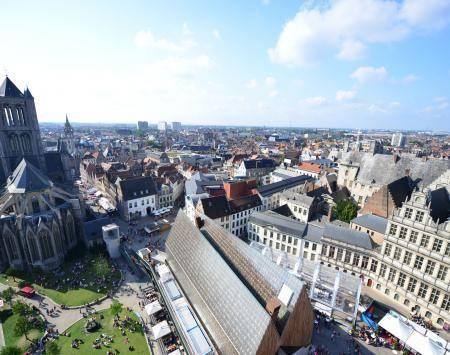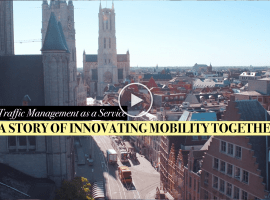A webinar provides clarification about the TMaaS Replicator City Programme

Register online for the webinar on March 25th, 11:00 AM
Towards the traffic management of the future
Increasing urbanisation is a challenge faced by thousands of small, medium and large cities. They all have problems that are both unique and diverse - an increase in traffic, parking problems and reduced quality of life are just a few examples. The fact that the range of problems is diverse calls for a service that can be adapted to each city’s specific needs and traffic management is a powerful tool to respond to this problem.
In a world that is increasingly digitalised and connected, traffic management acquires new functions and responsibilities. If small cities start using data-driven solutions, they can take steps towards traffic management. In the past this role has traditionally been left to the larger traffic centres in the region. A large number of sectors and services also stand to benefit from better integrated traffic management.
The unique public-private TMaaS joint venture responds to these needs. This joint venture made up of eight organisations led by the City of Ghent represents the main components of the urban mobility value chain: a local government authority (city of Ghent), two universities (UGent and KU Leuven), two global providers of intelligent mobility services (Be-Mobile and TomTom), a software development company (Waylay), a non-profit organisation representing the interests of civil society (EPF) and a communications expert (De Staatse Ruiter). Together they are working on a new, user-friendly and future-proof concept for the analysis, management and communication of mobility data.
Worldwide roll-out
The development of the TMaaS dashboard for Ghent tailored to meet the needs of professional users and citizens is in full swing. This summer, during the Ghent Festival, the Mobility Company of the City of Ghent will test the first prototype. Ghent may be the testing ground for TMaaS, but that doesn’t mean that the project stops here. The TMaaS team wants to share its knowledge and experience of cloud-based mobility management with other cities. It also wants to test the dashboard in an environment that may be completely different from that in Ghent. Later this year the venture will spread internationally with joint ventures with three 'TMaaS Replicator cities', chosen from the cities that respond to the call. Jens De Valck, TMaaS systems architect (Be-Mobile): "As with the city of Ghent, we will closely examine and test the data sources that we can use locally adding it to the basic dashboard with the ultimate goal of making it even better and more user-friendly for residents and traffic managers.” TMaaS is encouraging the cities to form an image of the data sources available by carrying out a critical examination of their own organisation, city or network. They are asked to draw up a clearly defined use case for their city, in which the added value offered by TMaaS is clearly visible.
The roll-out in other cities is essential for the project. 'Innovative and people-driven': that is the basic maxim of TMaaS. The tool that is being developed enables mobility management that is tailored and adapted to the needs of the cities in question. Account is thereby taken of the fact the TMaaS dashboard will ultimately be used by people who do not necessarily have traffic management experience. In the same way as in Ghent, the developers in the other cities will make an improved quality of life a priority. They will cooperate not so much on aiming for a 'smart city', but for smarter citizens. By providing them with the best possible information, they will be able to avoid unnecessary journeys or will be able to choose from any of the public transport options available in the city. During the Webinar participants will be given additional information about the project and will be able to ask questions about the replicator programme.





























